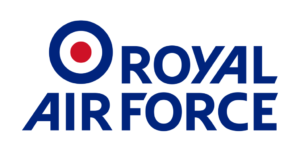
Electrician careers / job profile
Food, water, entertainment, safety… electricity lights up our lives. Power up the world as an electrician!
Getting into electrician careers
Similar jobs: Electrician Apprentice, Electrical Technician, Electrical Fitter
It’s known by many names – electrical fitter and electrical technician to name a few – but your job as an electrician is to bring power, light and energy wherever it’s needed using the force of electricity. It’s great to be able to say you control electricity as your job. Your skills will always be in demand, because people always need power.
Electrician apprenticeships are a great way into the role – read on to find out more.
Busting myths about electrician careers
You don’t have to be stuck behind a desk as an electrician. You’re always on the go, meeting new people (and staying fit because you’re doing practical work). Your career is future-proof and eco-friendly, because sustainable futures mean the world is looking at energy saving bulbs, electric cars, smart homes and much more. Over your career you’ll gain so much experience that you’ll end up training longer than doctors – but your salary goes up, too! According to a 2016 Trade Sales Survey, being an electrician is the best-paid job of all the trades.
How much money can you earn as an electrician?
These LMI Job Trends give you a sneak peek of how much you could earn starting out for this career, and how much your salary could grow with experience.
Average salary for electrician jobs
Recent labour market information says you can earn up to £42,000 a year as an electrician in the UK – because it is the highest-paid trade job.
Your starting salary can vary because of factors like level of experience, training, location or the size of the company. Your salary as an electrician will increase over time as you build skills, knowledge and experience.
Engineering Career FAQs & Insights
Is there something you’d like to know about engineering careers? Maybe we can help!
Skills you need to become an electrician
Useful skills to put in your CV for electrician jobs:
- Customer service skills – you’ll need to talk about any repairs which might be needed, how long they’ll take to do, and how much they’ll cost
- Good practical and problem-solving skills – every vehicle fault is a problem, and you’ll be using your brain and hands to fix them!
- Being able to follow both spoken and written instructions to carry out servicing and maintenance in the way that’s been asked of you
- Being able to pick up new car and vehicle tech trends – every year, cars are brought out to be better than the year before. One day you might be working on a vintage Jaguar like James Bond might drive, and the next you might be asked to work on an electric or hybrid car. Being able to think sideways with what you already know and apply it to new situations is a big plus.
Useful skills for electricaian jobs:
- Practical skills – you’ll be good at working with your hands
- Able to follow wiring diagrams, technical drawings and building plans (this will be taught to you on apprenticeships and relevant college courses)
- Good problem solving skills so you can figure out the logical next step in a task
- Being able to work safely and carefully (electricity is dangerous and you need to learn how to handle it correctly).
How do you get these skills?
Vocational qualifications and work experience will help you build these skills over time.
Build Your Skills With the FREE Young Professional Programme
What Qualifications & Training Do You Need For Electrician Careers?
School, College And Training
You can usually start training as an electrician straight after school.
Most electrician jobs – and training opportunities – need you to have GCSEs or their equivalent in maths, English and science at grades 9-4/A*-C. However, you may still be accepted for training if an employer needs you to pass an aptitude test instead.
You can also look into Technical Awards in place of GCSEs, such as the City & Guilds TechBac. These will prepare you for a trainee electrician position, and you can also do college courses that will give you the knowledge you need to apply for apprenticeships and entry level roles.
Electrician College Courses
These college courses can help you to find electrician apprenticeships and trainee roles:
- Level 2 Diploma in Access to Building Services Engineering (Electrical)
- Level 2 and Level 3 Diploma in Electrical Installation
- T Level in Building Services Engineering for Construction
Entry Requirements For Electrican Courses
Have you got the following grades from school? Take a look to see which level of electrician college course is the best fit for your qualifications.
- 2+ GCSEs or equivalent at grades 9 to 3 (A* to D) for level 2 courses
- 4 or 5 GCSEs or equivalent at grades 9 to 4 (A* to C) for level 3 courses
- 4 or 5 GCSEs or equivalent at grades 9 to 4 (A* to C), including English and maths, for T-Levels.
- You’ll need at least 2 GCEs or the equivalent with grades 9 to 3 (A* to D) for the T Level in Building Services Engineering for Construction.
Electrician Apprenticeships
Many electricians enter the job via an apprenticeship. This will give you an industry-recognised level 3 qualification combined with real-life experience. You’ll be paid to learn as you combine practical work with structured education and mentoring.
You can apply for an installation and maintenance electrician advanced apprenticeship.
You can also train to become an electrician with the armed forces through an apprenticeship.
With those GCSEs or their equivalents under your belt you may be eligible for the following advanced apprenticeships under the NASEC:
- Advanced Apprenticeship in Electrotechnical Maintenance
- Advanced Apprenticeship in Electrical Maintenance
While at school or college, speak to your careers advisor about useful training and/or courses for you to take and find out more about the types of career routes available.
You can seek out electrician apprenticeships with organisations like Find an Apprenticeship.
These Employers & Training Providers Offer Electrician Apprenticeships
Electrician Career Path And Progression
What Work Experience Do You Need For Electrician Jobs?
Electrician Work experience Tips
You can start with an entry-level position or earn money while you get trained with an apprenticeship.
At school/college and beyond, aim to get electrician work experience to build your CV. This can involve:
- Work shadowing (even if it’s just for a day)
- Work placements in a company
Volunteering Electrician Tips
The easiest way to volunteer to pick up useful skills is to ask someone in your family or circle of friends if you can watch and learn as they do electrical maintenance around the house or in their place of work, if it is permitted.
You really need to know what you are doing when working with electricity, so you need structured training. But volunteering to help out someone you know by carrying stuff and making them cups of tea so they can share their knowledge with you is a good start.
What Does An Electrician Do?
Example electrician daily job responsibilities
- Installing power systems, lighting, security and network systems (installation electrician)
- Checking to make sure that systems are working safely and efficiently to save energy (maintenance electrician)
- Making control panels for the electrical systems in buildings and installing them (electrotechnical panel builder)
- Fixing and servicing electrical transformers and motors (machine repair and rewind electrician)
- Installing and taking care of street lighting and traffic systems (highway systems electrician)
21st century electricians
Working as an electrician has changed over time and you could also be working with renewable technology like solar power, wind turbines and ‘smart’ heating systems. Your main job is to create power for people in a way that’s safe. It means you could be working anywhere from someone’s home or a giant engineering project
As you can see, there are many types of electrician out there. An apprenticeship or college course can give you the foundation you need to get started in a career. You can then build specialist knowledge in the area that interests you most over time.
How To Find Electrician Jobs: Next Steps
To find early careers in this role, search on job boards for electrician jobs with these words in the title:
- Electrician
- Electrical fitter
- Electrical engineer
- Electrical technician
- Installation electrician
- Junior Electrician
- Trainee Electrician
- Apprentice Electrician
- Electrician T-Levels
- Electrician Training UK
These Youth Friendly Employers offer great opportunities
These Youth-Friendly Employers might be able to help you get great electrician apprenticeships, jobs, training or experience! Take a look.
Construction Employers…
Engineering Employers…

























Construction Career Tips & Opportunities
Construction Career Guides
View job descriptions with average UK salary, useful qualifications and a variety of routes into this career.
Engineering Career Tips & Opportunities
Engineering & Manufacturing Career Guides
View job descriptions with average UK salary, useful qualifications and a variety of routes into this career.
Resources And Links
YES! I Want More Free Careers Help...
So what are you waiting for? Grab your future.










































